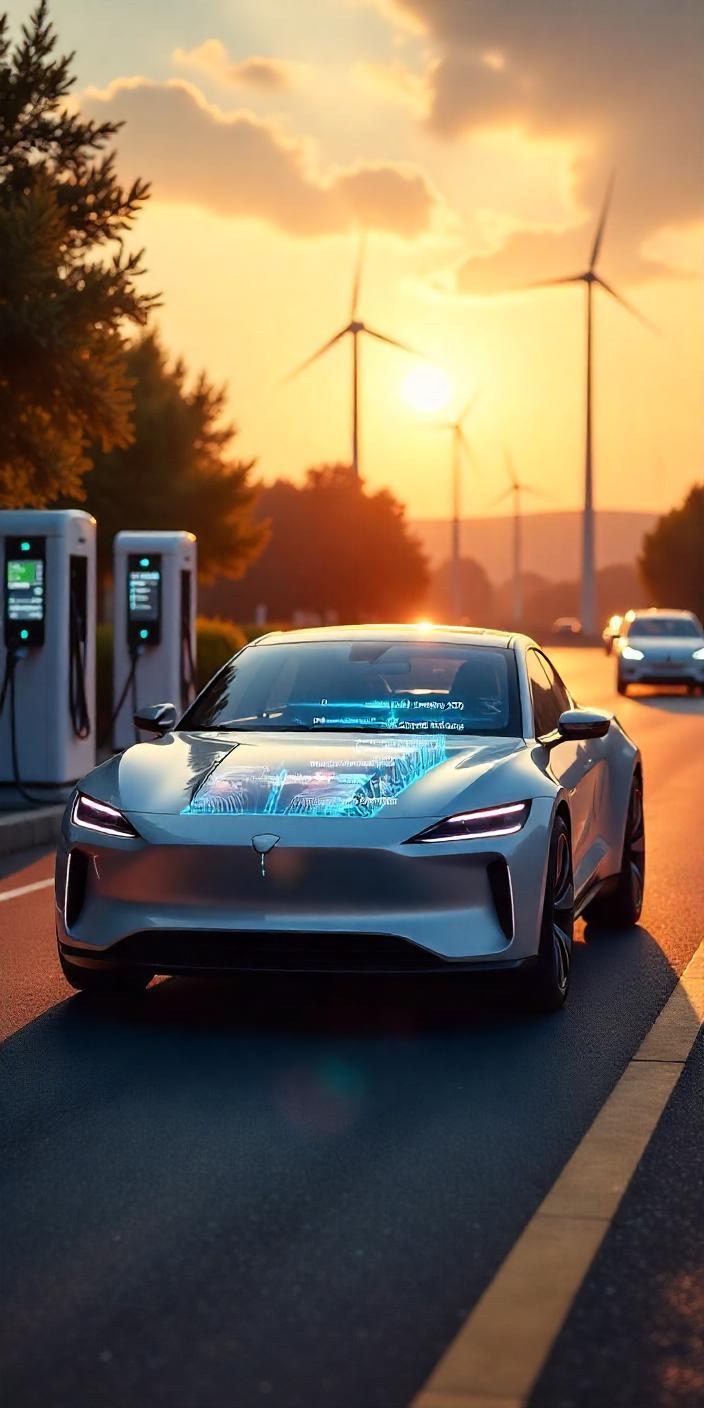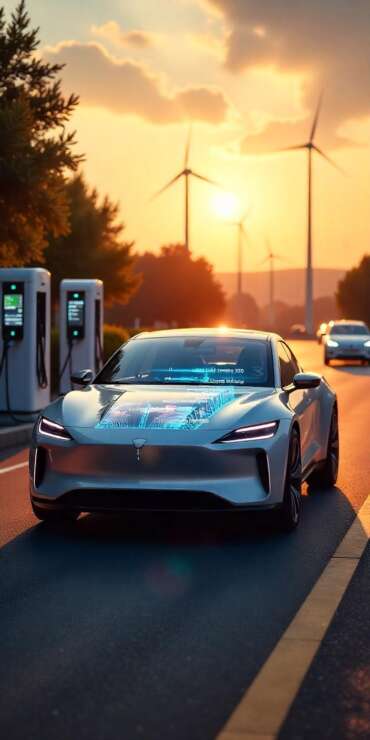
How the Lionc Battery Delivers High-Capacity Performance for EVs

The transportation industry is rapidly transitioning to electric vehicles (EVs), driven by the need for cleaner, more sustainable solutions. At the heart of every EV is its battery, and the LionC battery has emerged as a game-changer for delivering high-capacity performance.
But what makes the LionC battery stand out in a crowded marketplace? In this article, we’ll explore how it optimizes energy density, voltage, and longevity to meet the demanding needs of EVs. Along the way, we’ll answer questions like:
- How does voltage affect the energy capacity of a battery pack?
- Why are lithium-ion batteries preferred for EVs?
- How to calculate energy density of lithium-ion batteries?
- What is high energy density in a battery?
How Does Voltage Affect the Energy Capacity of a Battery Pack?
The voltage of a battery pack plays a critical role in determining its energy capacity and efficiency. Energy capacity, typically measured in kilowatt-hours (kWh), is the total amount of energy a battery can store and deliver.
The LionC battery leverages optimized voltage levels to maximize performance, allowing EVs to operate efficiently even under heavy loads. For example, electric school buses equipped with the LionC battery achieve extended range and consistent power delivery.
Why Voltage Matters in EV Performance
- Improved Efficiency: Higher voltage systems reduce energy loss during transmission, ensuring maximum power reaches the motor.
- Enhanced Performance: Voltage impacts torque and acceleration, especially crucial for larger EVs like buses.
- Battery Longevity: Proper voltage management helps prevent overloading, extending the battery’s lifespan.
For more insights into how voltage affects battery performance, check out this detailed resource.
Understanding the Energy Density of Lithium-Ion Batteries
Energy density is one of the most important factors determining a battery’s performance in an EV. It refers to how much energy a battery can store per unit of weight or volume. A higher energy density means better range and efficiency for the vehicle.
Energy Density of Lithium-Ion Battery (MJ/kg)

The energy density of lithium-ion batteries is measured in megajoules per kilogram (MJ/kg). Leading batteries, like the LionC battery, deliver an energy density of 0.7–0.9 MJ/kg, making them ideal for powering EVs while minimizing battery weight.
Energy Density of Lithium-Ion Battery in Joules
To break it down further, the energy density of lithium-ion batteries can be expressed in joules. These batteries typically offer 500,000 to 900,000 joules per kilogram, ensuring reliable and consistent power delivery.
This high energy density allows EVs to cover more miles on a single charge, reducing charging frequency and downtime. For a comparison of lithium-ion energy density vs gasoline, explore this resource.
Density of Lithium-Ion Battery (kg/m³)
In addition to energy storage, the density of lithium-ion batteries affects their design and usability in EVs. With a density range of 2,500 to 3,000 kg/m³, lithium-ion batteries like the LionC battery provide exceptional power in a compact package, leaving more room for passengers or cargo.
What Is a High Energy Density Battery?
A high energy density battery delivers more power for its size and weight, making it a key feature for EVs. The LionC battery exemplifies this concept by offering unparalleled energy storage without sacrificing efficiency.
Why High Energy Density Matters:
- Extended Driving Range: EVs can travel longer distances on a single charge.
- Lower Operating Costs: Fewer charges reduce energy expenses over time.
- Lightweight Design: High energy density minimizes the weight of the battery, improving vehicle efficiency.
How to Calculate Energy Density of Lithium-Ion Batteries

If you’re curious about how energy density is measured, here’s the simple formula:
Energy Density (Wh/kg) = (Battery Voltage × Capacity in Ah) ÷ Battery Weight (kg)
For example, a battery with 50 kWh capacity and a weight of 250 kg would have an energy density of 200 Wh/kg. The LionC battery is engineered to optimize this metric, ensuring top-tier performance for EVs.
Why Are Lithium-Ion Batteries Preferred for EVs?
Lithium-ion batteries are the preferred choice for EVs because of their high performance and durability. The LionC battery builds on these advantages, delivering a reliable, cost-effective, and environmentally friendly solution for electric transportation.
Key Benefits of Lithium-Ion Batteries:
- High Energy Density: Enables longer driving ranges without adding excessive weight.
- Fast Charging: Reduces downtime for EV owners and operators.
- Durability: With proper care, lithium-ion batteries can last for years.
- Eco-Friendliness: They are easier to recycle than older battery technologies.
Learn more about why lithium-ion batteries are ideal for EVs.
How Do Lithium-Ion Batteries Work in EVs?

At a basic level, lithium-ion batteries function by moving lithium ions between electrodes during charging and discharging. Here’s a step-by-step breakdown:
- Charging Phase: Lithium ions move from the cathode (positive electrode) to the anode (negative electrode), storing energy.
- Discharging Phase: The ions flow back to the cathode, releasing energy to power the motor.
This seamless process is what makes the LionC battery efficient and reliable, even in demanding environments like public transportation.
What Is the Purpose of a High-Capacity EV Battery?
The LionC battery is a high-capacity battery designed to meet the rigorous demands of EVs. Its main purpose is to:
- Extend Driving Range: Cover more miles without frequent recharges.
- Support Power-Intensive Features: Run heating, cooling, and infotainment systems without draining energy.
- Enhance Reliability: Provide consistent performance in varying weather conditions.
For commercial applications like electric school buses, these benefits translate to lower costs and improved operational efficiency.
How Do I Increase the Battery Capacity of My EV?

While you can’t physically increase a battery’s capacity, there are ways to optimize performance:
- Use Regenerative Braking: Recover energy while slowing down.
- Avoid Extreme Temperatures: Store the battery in moderate conditions.
- Regular Maintenance: Check for updates or replace worn components.
- Charge Smartly: Avoid overcharging or letting the battery drain completely.
Conclusion: Why the LionC Battery Is a Game-Changer
The LionC battery represents the future of EV technology. Its high energy density, optimized voltage, and advanced features make it the perfect choice for electric school buses and other EV applications.
Key Takeaways:
- The LionC battery is designed to maximize performance, efficiency, and longevity.
- It supports sustainability with recyclable materials and lower carbon footprints.
- Its compact design ensures excellent usability without sacrificing power.



1 Comment